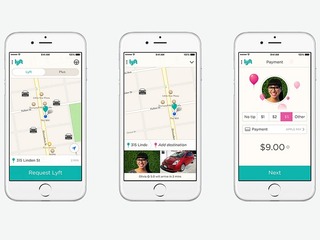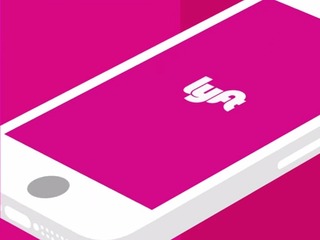
$1 billion in revenue and more: Lyft by the numbers
A look at revenue, profit, losses, and other statistics from the second-place ride-hailing service
 It’s hard being #2.
It’s hard being #2.
While much fanfare is being made today about Uber delivering (not puppies… not ice cream… but…) flu shots to customers today, most news pieces about Lyft from the past week have reported and speculated on various facts and figures surrounding the company’s financials.
Here is a breakdown of all the most recent numbers being distributed and what it means for the ride-hailing space overall.
$1 billion
At the Los Angeles Auto Show on Tuesday, Lyft’s president and cofounder John Zimmer shared that the company is currently operating at a $1 billion revenue run rate, based on October financials. This is 10 times the gross revenue run rate that Lyft was operating at two years ago.
The company told me they have captured 40% market share in Austin and San Francisco, while they have also tripled their market share in New York over the past few months.
While this is incredible growth, there’s more to the story...
$83 million
Doing the simple math of dividing their revenue run rate by 12, you get $83 million, the company’s revenue for the month of October. Because this is gross revenue, it shows the total amount of money paid from all passengers to all drivers.
When you split that amount between drivers (80 percent) and Lyft (20 percent), you find that in October, all Lyft drivers collected about $66 million and Lyft the company collected about $17 million. Now multiply by 12 and you get $204 million, Lyft’s cut for the next year if it keeps operating at the same rate that it did in October.
$127 million
While Lyft’s revenue numbers are rosy, that growth has been fueled by intense marketing spend and promotional discounts to increase the number of drivers and riders using its platform.
In the first half of this year, according to leaked documents, Lyft saw a net loss of $127 million. The report also says company has failed to meet its own expectations on nearly all metrics, including revenue, losses, and customer growth. Lyft declined to comment on this.
Seven million
The number of rides Lyft ran in October.
For comparison, Uber said in December 2014 that it runs a million rides daily, meaning its monthly rate was about 30 million. That number has surely grown over the last year especially as the company has invested heavily in international markets like China and India.
One
Again, some more perspective. Lyft currently only operates in the United States, while Uber operates in 67 countries globally.
Lyft did recently announce a strategic partnership with Didi Kuaidi, a leading car-hailing service in China. The way it works is that people traveling to China from the US can use their Lyft app to seamlessly hail rides provided by Didi Kuaidi, and the same works for people traveling to the US from China who want to use the Didi Kuaidi app to hail Lyft rides.
I've asked Lyft to explain how revenue sharing works in this deal, but they said those details won't be available until the partnership is "live."
$500 million
Anonymous sources say Lyft is looking to raise a new $500 million round of funding at around a $4 billion valuation. (Lyft declined to comment on these figures.)
The company has already raised two significant rounds this year: a $530 million round in March led by Rakuten and then a $150 million round in May led by Icahn Enterprises, the last one valuing the company at about $2.5 billion. In total, Lyft has raised just over $1 billion.
By comparison, Uber has raised $1 billion several times over, the most recent instance being September, when Baidu led a $1.2 private equity round for the company to compete in China. Recent estimates value the company at around $50 billion.
Let alone Lyft in the U.S., Uber has serious work to do internationally, with its main competitors in China and India having both raised significant funding: Didi Kuaidi with $1 billion in China and, just this week, Ola Cabs with $500 million in India.
Related Companies, Investors, and Entrepreneurs
Lyft
Startup/Business
Joined Vator on
Lyft is a peer-to-peer transportation platform that connects passengers who need rides with drivers willing to provide rides using their own personal vehicles.
Uber
Startup/Business
Joined Vator on
Uber is a ridesharing service headquartered in San Francisco, United States, which operates in multiple international cities. The company uses a smartphone application to arrange rides between riders and drivers.
Related News


Didi Kuaidi raises another $1B to kneecap Uber in China


